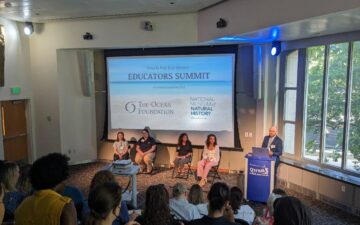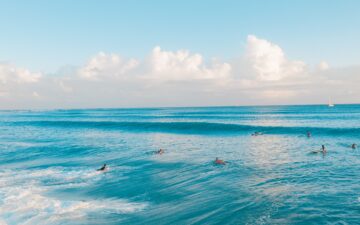Teach For the Ocean Initiative
Optimizing ocean education to drive conservation action.
The Ocean Foundation’s Teach For the Ocean Initiative bridges the knowledge-to-action gap by shifting the way we teach about the ocean into tools and techniques that encourage new patterns and habits for the ocean.
By providing training modules, information and networking resources, and mentorship services, we support our community of marine educators as they work together to advance their approach to teaching and develop their intentional practice to deliver sustained conservation behavior change.
Our Philosophy
We can all make a difference.
If more marine educators are trained to teach people of all ages about the ocean’s influence on us and our influence on the ocean – and in a way that effectively inspires individual action – then society as a whole will be better equipped to make informed decisions that improve and steward ocean health.
Each of us has a role to play.
Those who have traditionally been excluded from marine education as a career pathway – or from the marine sciences in general – need access to networking, capacity building, and career opportunities in this field. Thus, our first step is ensuring that the marine education community reflects the broad array of coastal and ocean perspectives, values, voices, and cultures that exist around the world. This requires proactively reaching out, listening, and engaging diverse individuals both within and beyond the field of marine education.
Photo courtesy of Living Coast Discovery Center
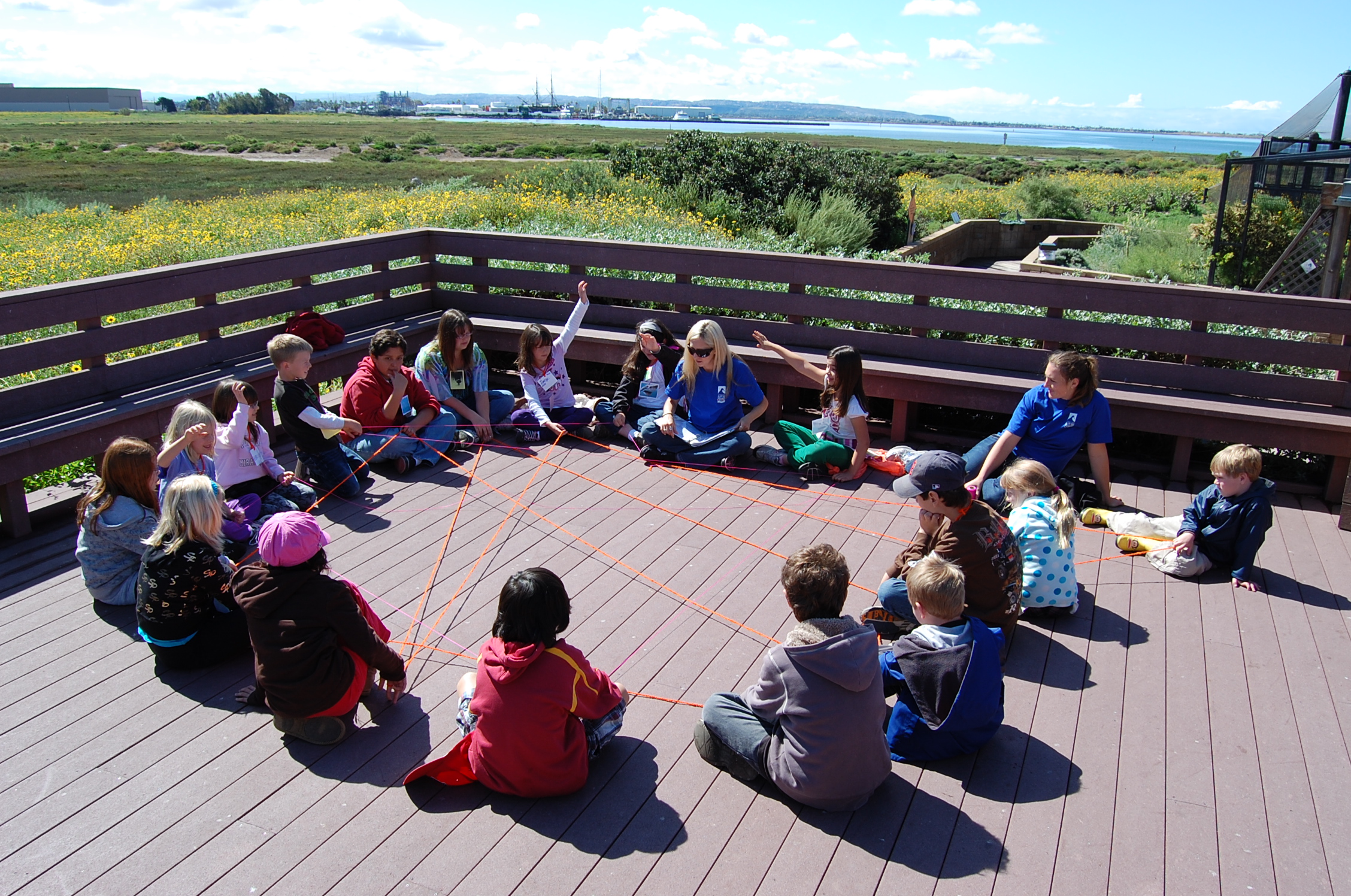
For the next generation to manage the effects of a changing ocean and climate, they need more than basic education and training. Educators must be equipped with the tools of behavioral science and social marketing to influence decision-making and habits that support ocean health. Most importantly, audiences of all ages need to be empowered to take creative approaches to conservation action. If we all make small changes in our everyday lives, we can create systemic change across society.
Our Approach
Marine educators can help develop our knowledge of how the ocean functions and all the species that live within it. However, the solution is not as simple as just understanding more about our relationship with the ocean. We need audiences to be inspired to incorporate conservation action from wherever they sit by shifting our focus toward optimism and behavior change. And this information needs to be accessible to everyone.
Our Work
To provide the most effective educational training, Teach For the Ocean:
Creates Partnerships and Builds Lasting Relationships
between educators from different regions and across disciplines. This community-building approach helps participants connect and establish networks to open doors for job opportunities and professional growth. By providing a forum for participants to discuss their ocean stewardship goals and identify areas for potential collaboration and partnership, we encourage conversation among sectors, disciplines, and perspectives that are currently underrepresented in existing education spaces. Our program alumni and mentors are an integral part of this long-term community of practice.
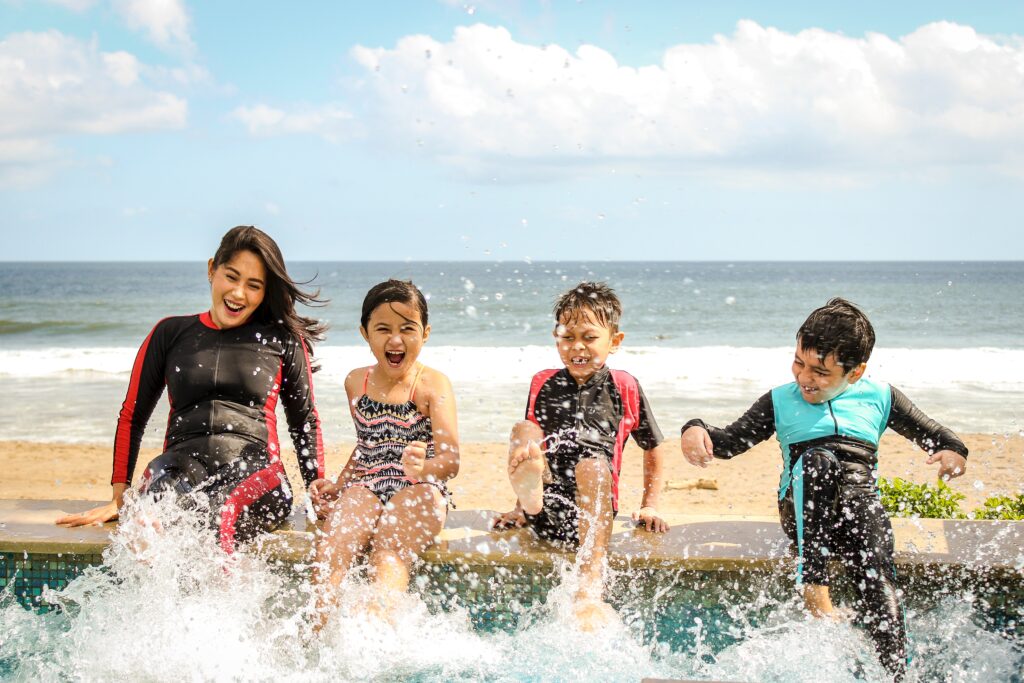
Chairing Conservation Committee for the National Marine Educators Association
Teach For the Ocean Initiative lead Frances Lang chairs the NMEA Conservation Committee, which works to make known the wealth of issues that influence the wise stewardship of our aquatic and marine resources. The Committee strives to research, verify, and share information with the over 700+ strong NMEA membership base and its audiences in order to provide tools to make informed “blue-green” decisions. The Committee convenes meetings and shares information through NMEA’s website, annual conferences, Current: The Journal of Marine Education, and other publications.
In the years to come, we also strive to influence job creation and preparation by hosting workshops, introducing Teach For the Ocean “graduates” to our global network, and funding community-based education projects, thus enabling our trainees to spread ocean literacy even further.
As a community foundation, The Ocean Foundation develops networks and brings people together. This starts by allowing communities to define and dictate their local needs and their own paths to effect change. Teach For the Ocean is recruiting mentors from diverse populations to match with our mentees and build a community of practitioners who share information and lessons learned across careers.
Mentors Early Career and Aspiring Marine Educators
in both the areas of Career Advancement and Career Entry Advising. For those already working in the marine education community, we support mutual learning between mentors and mentees from various professional stages to support career advancement through a combination of one-on-one and cohort-based mentorship, and Continued Professional Development (CPD) support and ongoing communications with mentees and graduates who complete the Teach For the Ocean program.
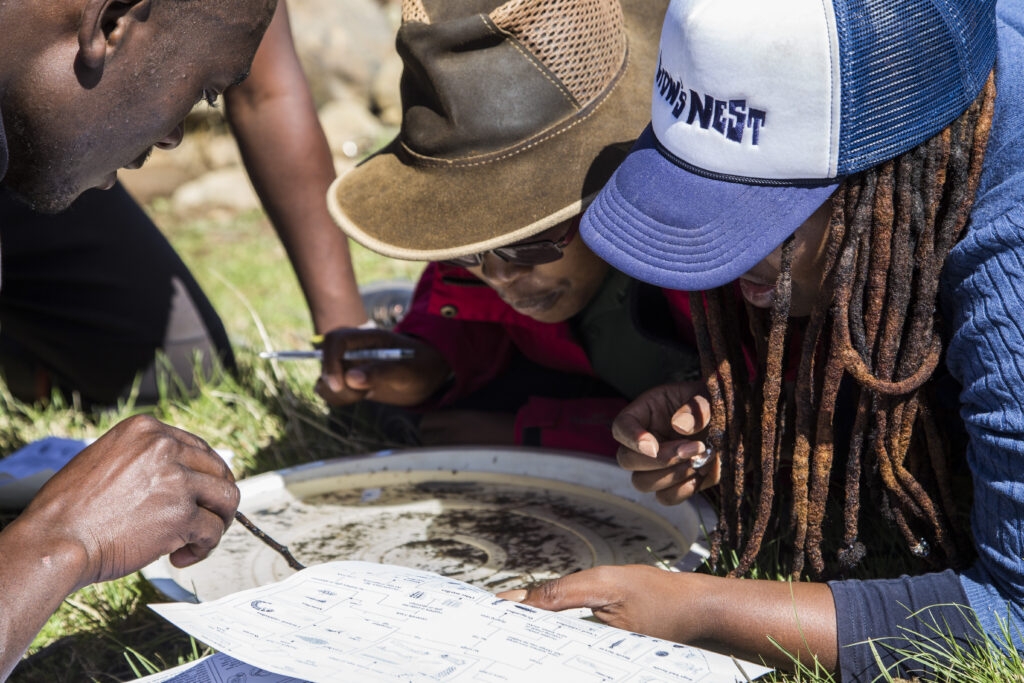
Guide to Developing Mentoring Programs for the International Ocean Community
The whole ocean community can benefit from the mutual exchange of knowledge, skills, and ideas that occurs during an effective mentorship program. This Guide was co-developed with our partners at the National Oceanic and Atmospheric Administration (NOAA) by reviewing evidence from various established mentorship program models, experiences, and materials to compile a list of recommendations.
Our Career Entry Advising work introduces aspiring marine educators to the various career paths available in this sector and provides job preparation support, such as rapid “speed dating style” informational interviews to expose participants to a sampling of career paths, resume and cover letter review, and advising to emphasize the skills and attributes most desired in the current job market, and hosting mock interviews to help mentees strengthen their personal story.
Facilitates open access information sharing
by compiling, collating, and making freely available, a series of high-quality existing resources and information to connect all peoples in the communities in which we work to the behavior change educational resources they need to achieve their ocean stewardship goals. Materials emphasize the unique nexus between the Ocean Literacy Principles, teaching methods and strategies, and behavioral psychology.
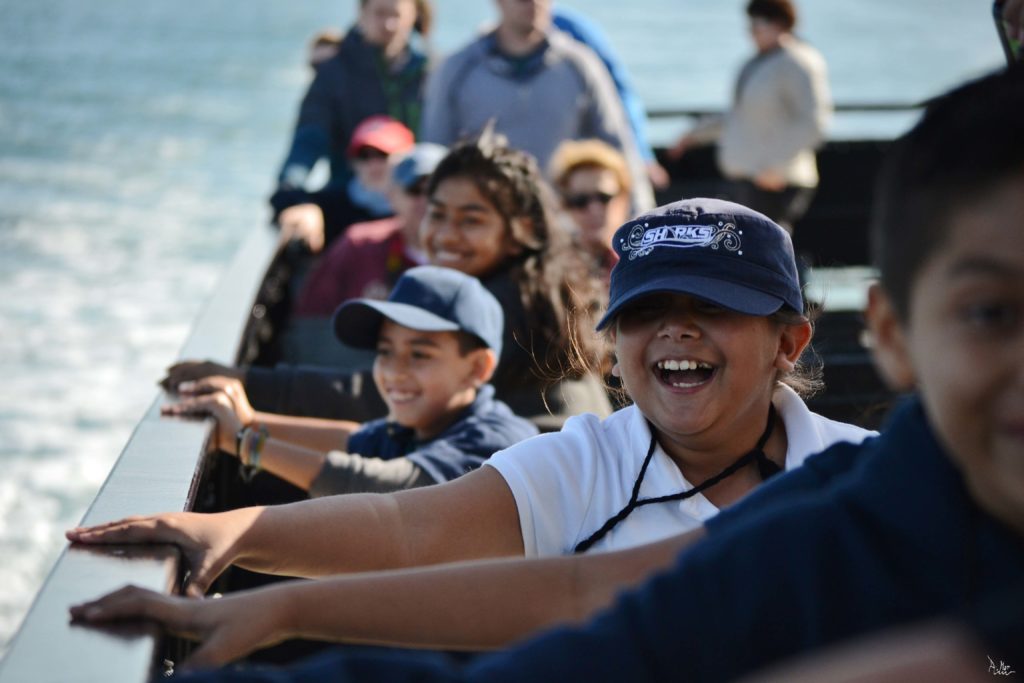
Our Ocean Literacy and Behavior Change Research Page provides a free-of-charge annotated bibliography for a curated series of resources and tools you can use to learn more and further your work in this area.
To suggest additional resources to include, please contact Frances Lang at [email protected].
Provides Professional Development Trainings
to raise awareness about differing approaches to teaching the Ocean Literacy Principles and provide tools that encourage the transition from awareness to behavior change and conservation action. We provide curriculum and convene trainings across three thematic modules, with an emphasis on individual action to solve local conservation problems.
Who are Marine Educators?
Marine educators work in a variety of creative ways to teach ocean literacy. They can be K-12 classroom teachers, informal educators (educators that deliver lessons outside of the traditional classroom setting, such as in the outdoors, community centers, or beyond), university professors, or scientists. Their methods may include classroom instruction, outdoor activities, virtual learning, exhibit presentations, and more. Marine educators play a vital role in helping to advance global understanding and protection of marine ecosystems.
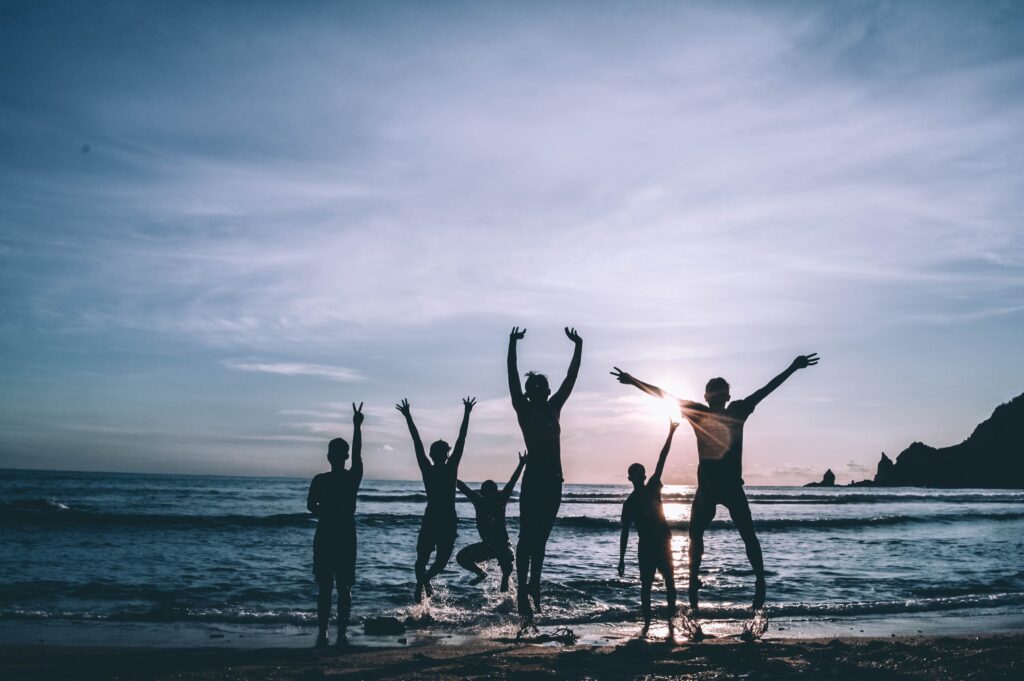
UC San Diego Extended Studies Ocean Conservation Behavior course
Teach For the Ocean Initiative lead Frances Lang is developing a new course where continuing education students will learn about the specific actions relevant to ocean conservation from a global perspective.
Participants will examine how successful ocean conservation campaigns are designed with a focus on cultural awareness, equity, and inclusivity alongside educational, social, and psychological principles to promote individual and collective action at all levels of society. Students will explore ocean conservation problems, behavioral interventions, and case studies, and take a critical look at new technologies being used around the world.

Educators Summit
We are planning a community-led Ocean Literacy workshop for educators from all backgrounds, as well as students pursuing a career in education. Join us in advancing marine education, learning about ocean conservation and policy, engaging in dialogue, and building a career network pipeline.
The Bigger Picture
One of the most significant barriers to progress in the marine conservation sector is a lack of real understanding of the importance, vulnerability, and connectivity of ocean systems. Research shows that the public is not well-equipped with knowledge about ocean issues, and access to ocean literacy as a field of study and viable career pathway has historically been inequitable.
Teach For the Ocean is part of The Ocean Foundation’s contribution to a larger global community of people working to educate and promote action for ocean health. The deep, lasting relationships developed through this initiative uniquely position Teach For the Ocean participants to pursue successful marine education careers, and will contribute to making the overall field of ocean conservation more equitable and effective for years to come.
To learn more about Teach For the Ocean, sign up for our newsletter and check the “Ocean Literacy” box:
Resources
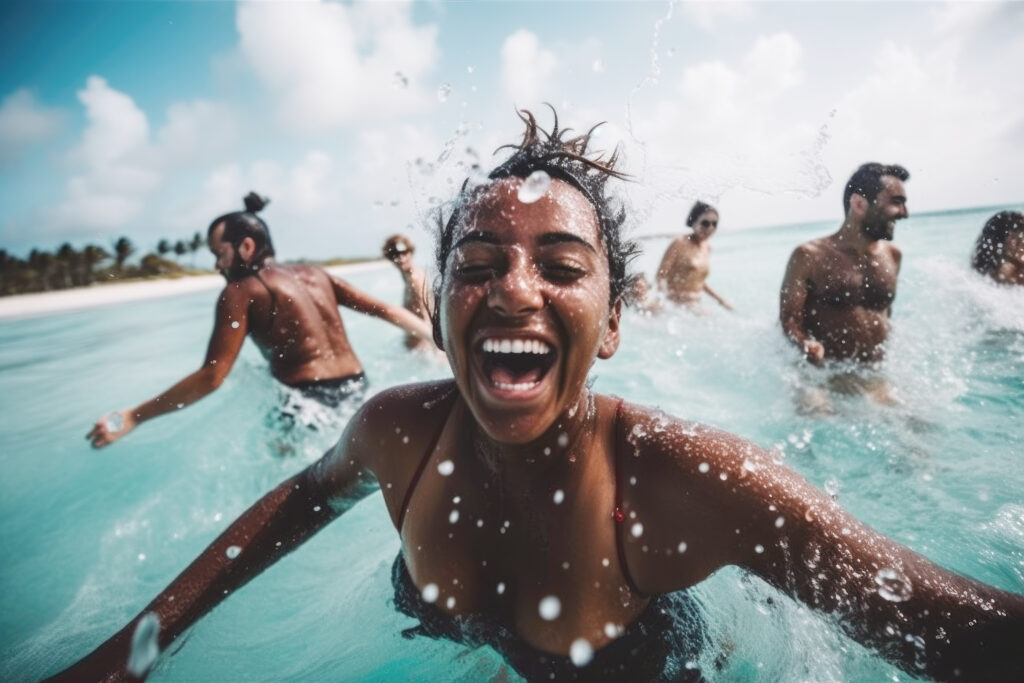
Youth Ocean Action Toolkit
The Power of Community Action
With support from National Geographic, we collaborated with young professionals from seven countries to develop a Youth Ocean Action Toolkit. Created by youth, for youth, the toolkit contains stories of Marine Protected Areas around the world.
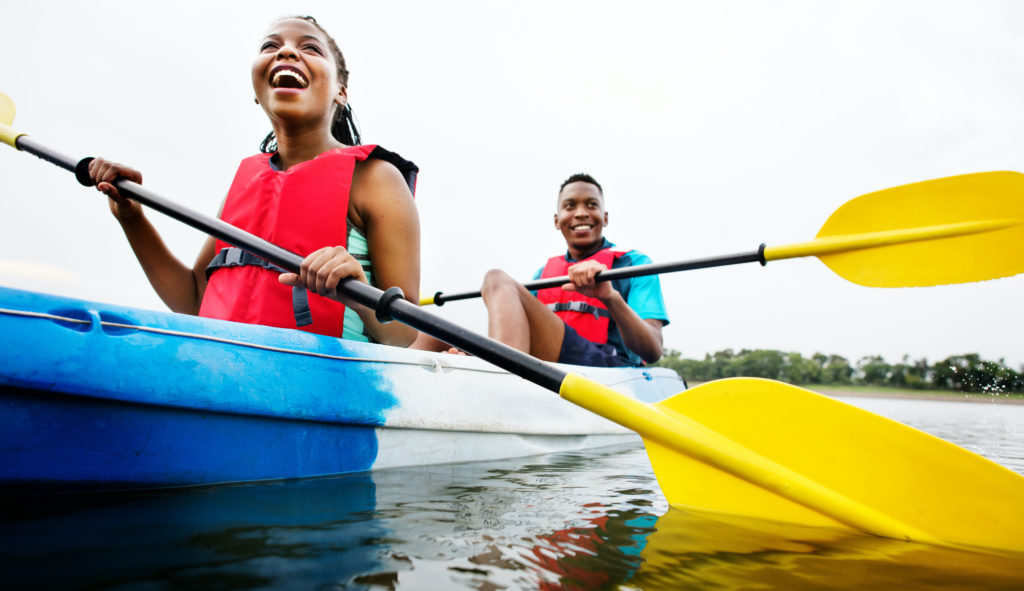
Ocean Literacy and Behavior Change
Research Page
Our ocean literacy research page provides current data and trends regarding ocean literacy and behavior change and identifies gaps that we can fill with Teach For the Ocean.
MORE RESOURCES
Marine Educator Assessment Results | Capacity Building | GOA-ON | Pier2Peer | All Initiatives
RELATED SUSTAINABLE DEVELOPMENT GOALS (SDGs)

